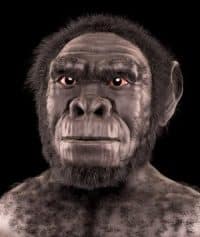Humans have been on the planet for 3 million years (Homo habilis), 2 million years (Homo erectus) or 200,000 years (Homo sapiens sapiens) depending on what you want to call “human”. The structure and organization of life we know as “civilization” has been around for about 8,000 years. It took us about 8,000 years to discover that our modern way of life, as possibly civilization, itself, is unsustainable (meaning that it will end). Perhaps we might consider the fact that for 96% to 99.6% of human existence (190,000 to 2.9 million years) we lived sustainably on one planet’s worth of resources. What lessons might we learn from our history to guide us once again to sustainable lifestyles, or, even better, thriving on one planet? Because writing, itself, developed with the lifestyle we call “civilization”, we never did have anything like a written owner’s manual for how our ancestors lived sustainably for so much time. Hopefully, archeology, anthropology, and related fields of study will help us create one. These are my notes from a course that may provide some clues.
